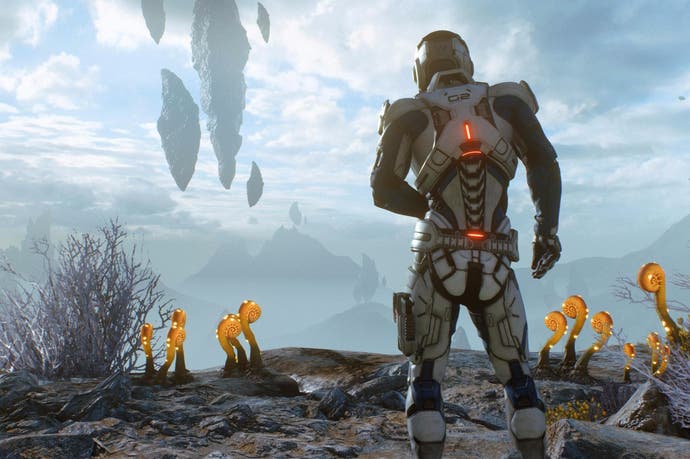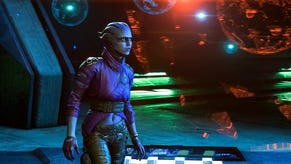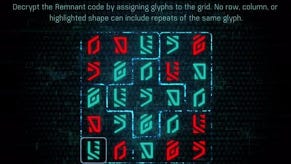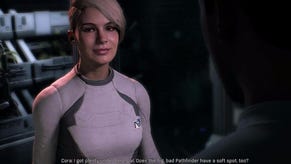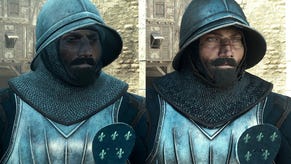Mass Effect Andromeda is another failure for trans representation
New galaxy, same old problems.
To be frank, Mass Effect Andromeda's trans representation is bad.
BioWare's games have a reputation, well earned or not, of being progressive and inclusive. These are games that allow players to create characters that aren't just white men and offer romantic relationships beyond heterosexual ones. Regardless of how far they go in making these inclusions meaningful, BioWare's games are among the few to do so. Which makes it a disappointment that Andromeda's inclusion of a trans character is fumbled.
Andromeda's backdrop, far from the Milky Way of the original trilogy, is a clean break that promises a rich new setting to explore. You've come to find new worlds to colonise and settle. Once a colony has been established you, in the role of Ryder, are then tasked with helping the people there, responding to the needs of numerous quest-givers. Among these is Hainly Abrams.
Upon first meeting Abrams the player can ask why she left for the Andromeda galaxy. Immediately she responds:
"Back home, I was filling test tubes in some dead-end lab. People knew me as Stephan. But that was never who I was. I knew what I could do and I knew who I wanted to do it as. 'Hainly Abrams, Andromeda Explorer'. That's me. Feels good. Feels right."
After the option of asking a few patronising questions it's back to business as usual.
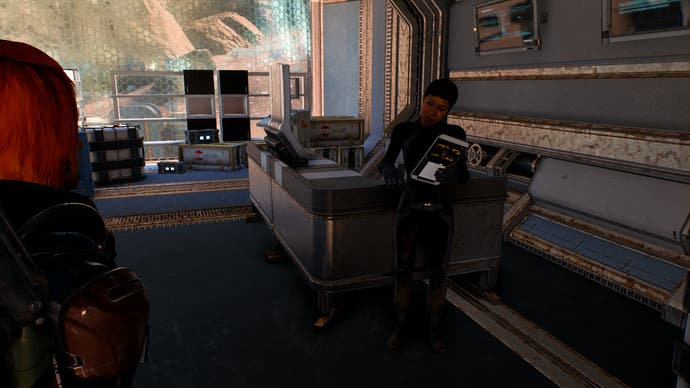
There are numerous problems with how Hainly's written here. That she's the colony's scientific director, an important role one imagines, is made secondary to her identity as a trans woman. This fact apparently had to be pushed front and centre, to the extent that it is written as her main reason for being here.
Most egregious of all is that Hainly willingly offers the name she was given before her transition. This is often referred to as a trans person's "dead-name" and the severity of that title should give anyone a fair idea of what it means. It is intimately tied to a period of their life filled with great distress and can be a painful reminder of that. Their dead-name is often used by those who wish to undermine their gender identity. Most trans people would not offer this former name to anyone, let alone a stranger.
What's frustrating here is that any trans person could have given this the most cursory glance and immediately told the writers why this is wrong. It feels forced, as if BioWare had to tick off "trans character" on some checklist and relegated this not to one of the well developed characters in the supporting cast but to an inconsequential NPC. Hainly isn't the only minor NPC written with such bluntness but sadly she seems to be the game's only trans character.
Whilst it may be tempting to commend BioWare attempting to be inclusive, the reality is a well-meaning inclusion done badly can be as harmful as one done maliciously. Trans people are often written as the subject of jokes in popular culture. In those instances where they're intended to be treated respectfully, it's usually without the consultation of any trans person and thus still perpetuates false ideas.
Mass Effect Andromeda isn't the only game of late to make this kind of misstep. Zelda: Breath of the Wild and Horizon Zero Dawn also came under fire for their flawed depictions. BioWare's own past games are littered with mixed results. Dragon Age 2's Serendipity, a drag-queen elf, was written and portrayed in such a confusing way that it offended just about anyone who could have possibly related to the character. However, only recently, in Dragon Age Inquisition, there was a flawed but positive depiction.
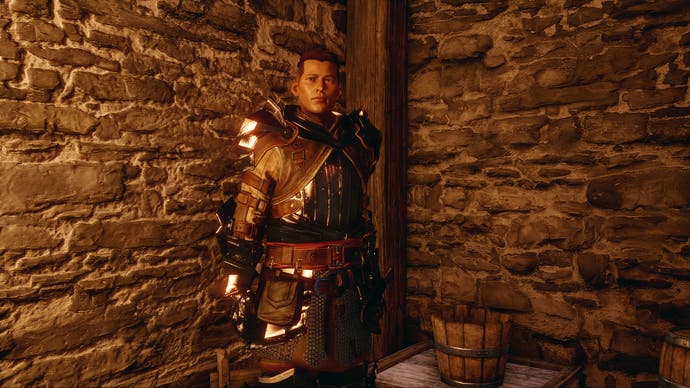
Cremisius Aclassi, known as Krem, is a transgender man and significant supporting character in Inquisition. Their identity is not made explicit or discussed until much time has been spent with them. They're regarded respectfully by the game itself and by their fellow characters, though the player is given the option to ask some rather offensive questions at one point. Krem is voiced by someone of the wrong gender though - Jennifer Hale in this case - which does continue to play into the wrong-headed idea that a trans person is someone merely posing as the opposite gender.
In a blog post discussing the creation and writing of Krem, Patrick Weekes notes: "A minor character like a shopkeeper would have no reason to explain that she is trans, so either the conversation would never come up or it would come up because her voice was clearly masculine, at which point it would look like a joke to most players, no matter how we tried to write it. Second, the character had to serve a purpose beyond 'being there to be a genderqueer person.' Every character in our game serves a purpose-reinforcing the theme of a plot, character, or area-and we do not have the budget for someone who is just there to tick off a box."
It is a shame this sentiment wasn't shared by the writers working on Andromeda.
Elsewhere in video games, there isn't exactly a great deal of trans representation, but there is one excellent example I'd like to mention: a character you might not even be aware is written as trans.
Arkane Studio's Dishonored 2 includes Mindy Blanchard, who appears early in the game and provides the player with an involving side-mission. Crucially, at no point does she state that she is transgender and the fact is only implied in notes the player can discover. If it weren't for lead designer Harvey Smith's admission online, it would only exist as a valid interpretation of the character rather than explicit fact.
Mindy gets to exist as a substantial character, with her own sub-plot. She is allowed to be a vengeful lover, experienced criminal, tough woman and tattoo enthusiast. Mindy is not defined solely by her trans identity, which is instead woven into her character but largely incidental. Also she is voiced, very well I should add, by someone of the correct gender.
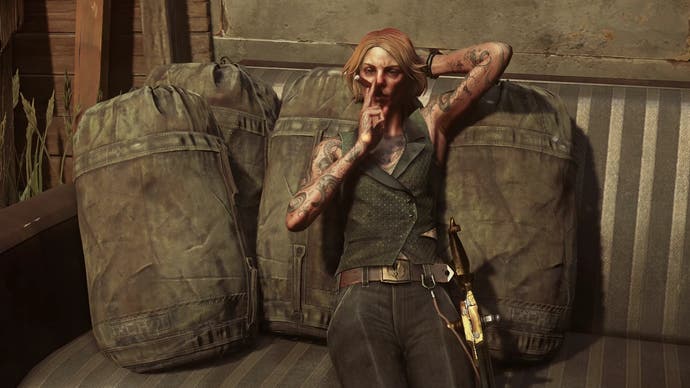
It's a benchmark for how other big titles should approach inclusion. Make it written into the text, make it a facet of their character, but do not make it their defining characteristic. This is a great character who just happens to be transgender.
Yet games can go further. Would it be so outlandish for a close companion to be quietly revealed as trans? Or for us as the player to define our main character as such? Why can't my Ryder tell Hainly that they too are transgender?
Cis creators are welcome to include trans characters in their stories, and Dishonored 2 proves it can be done well. Yet our experiences should be ours to share, in meaningful ways, not to be the subject of guesswork with a handful of sentences in a big budget video game. Hainly Abrams will go down as a cautionary failure and a mistake I hope BioWare will not repeat. The future for positive representation, as it always is, is to have those in question involved. It's time to stop failing to tell our stories and make room so we can tell them ourselves.
